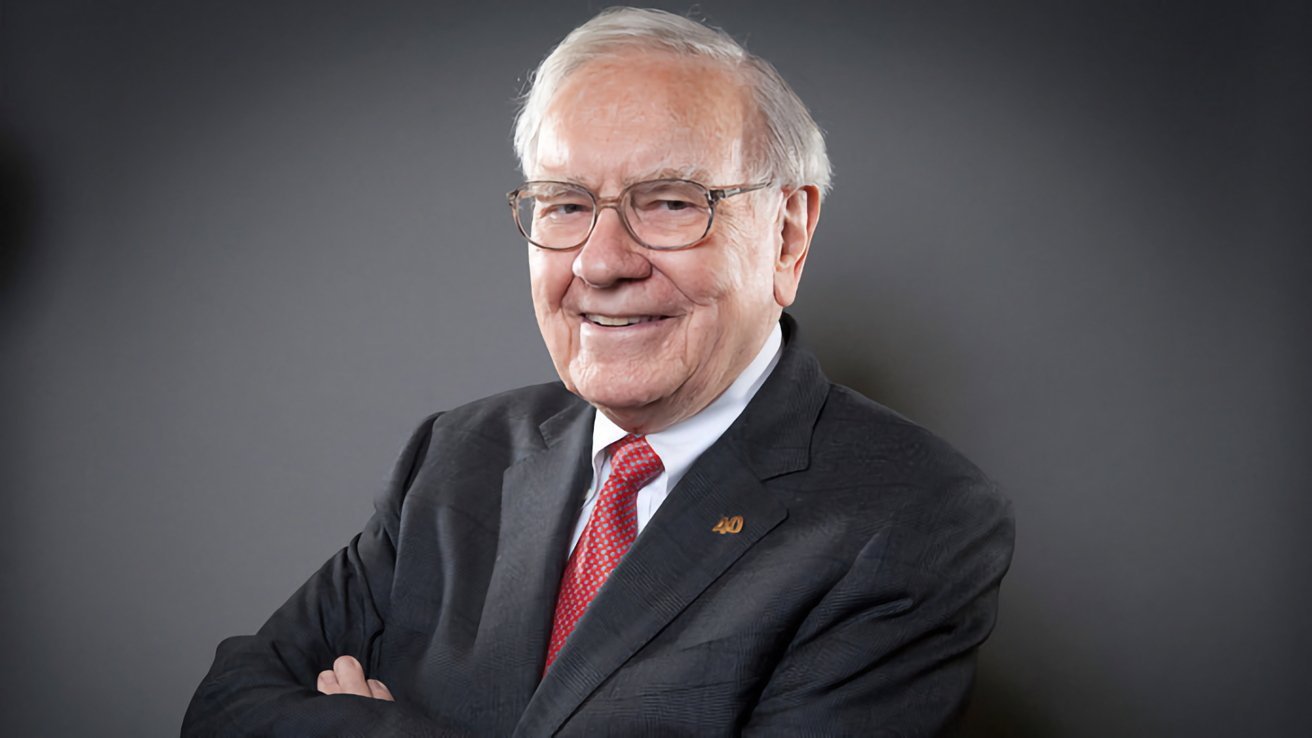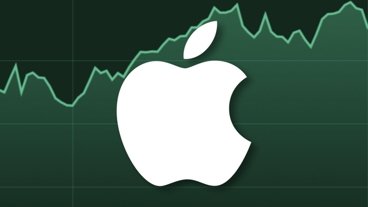Following both news of Berkshire Hathaway's selling over half its holdings in the company, and a wider fear of recession taking a steep toll on international stock markets, Apple shares took a steep dive as trading began on Monday.
Warren Buffett is a long-time proponent of Apple, but it has now been revealed that his firm Berkshire Hathaway has now cut its investment by more than half. Chiefly as a result of this, shares in Apple initially declined by 11%, though they have since been recovering.
Buffett's firm sold off its stock across the second quarter, now leaving it owning 2.8% of Apple. Despite the large sell-off, Berkshire Hathaway's stake is worth around $88 billion.
In March 2024, though, the company owned shares worth around $140 billion. As well as some sales reported in May, much of Buffett's sell-off has capitalized on how Apple's stock reached a record high in June 2024.
That increase came on the back of the firm's Apple Intelligence launch, but rumors and anticipation of that announcement had already reversed the firm's stock trajectory. Having seen shares decline throughout the year, Apple's fortunes entirely turned around in May 2025.
Then following the Apple Intelligence launch, Apple's stock price overtook Microsoft's.
Consequently, while the market seemed to initially think Berkshire Hathaway's sell-off was indicative of it losing faith in the firm, it's likely to be more of it taking advantage of recent large rises in the value of its shares.
According to financial commentators, as reported by Bloomberg, if Buffett's move was in anticipation of Apple's stock falling, Berkshire Hathaway would have sold all of its shares.
According to CNBC, the sell-off could be because of "portfolio management concerns." At one point half of Berkshire Hathaway's equity portfolio was in Apple shares.
Then, too, CNBC points out that Buffett sold 13% of his then stake in Apple in the first quarter of 2024. Reportedly, he indicated that this was a tax-saving move, in anticipation of the US government raising rates to fund a fiscal deficit.
Both CNBC and Bloomberg also argue that global stock markets are on the brink of a major correction. That's expected to be triggered by fears of an economic slowdown.
Repeatedly, reports on investor reactions to the Berkshire Hathaway sell off see advisors say not to sell. Perhaps a consequence, Apple's share price has begun to recover.
At time of writing, Apple's share price is now down 4.66% on the previous working day's trading.
 William Gallagher
William Gallagher







-m.jpg)






 Bon Adamson
Bon Adamson
 Marko Zivkovic
Marko Zivkovic
 Amber Neely
Amber Neely
 Malcolm Owen
Malcolm Owen


 Christine McKee
Christine McKee

-m.jpg)






13 Comments
'Hammered' is a bit strong. It did go down below 200 but back up to 210 as I write, that's better than many tech stocks. Considering it was in the 170s not long ago it's still doing very well all things considered. I wonder if Tim bought a load back this morning?
The buybacks are on a preset schedule filed with the SEC as far as I know.
My own expectation is this is just the beginning of a deep correction, and Apple dipping well below that 170 will not be a shock. It's not just one thing, but a worldwide contribution to economic unease in stock markets across continents.
Warren Buffett is a seer in the stock market. I'm far from it. So if he thinks it's wise to stockpile cash for the future and a better return from stocks, I think it's wise to least acknowledge he may be right and act accordingly. I began the process months ago, and last week made a major move in that direction. If I'm wrong, it really won't matter. I won't spend what I have now before I die.
Apple Insider must have a time machine to be able to tell us and react to what happened in May 2025 to Apple stock.
As I keep saying... the geopolitical situation with Xi vs. Taiwan creates a great deal of risk for AAPL that I don't think is adequately reflected in the share price.
I give credit to Apple for trying to mitigate that risk by moving some production to India and growing their services business, but the risk is still there and it's big.
Another thing I'd like to see Apple do is sign on as a customer to Intel's foundry business with their 18A process. Apple could start using them in a limited way for ACDC just to see if Intel can deliver. And if they can, then having Intel as a second source for silicon fabrication would be a huge de-risker.